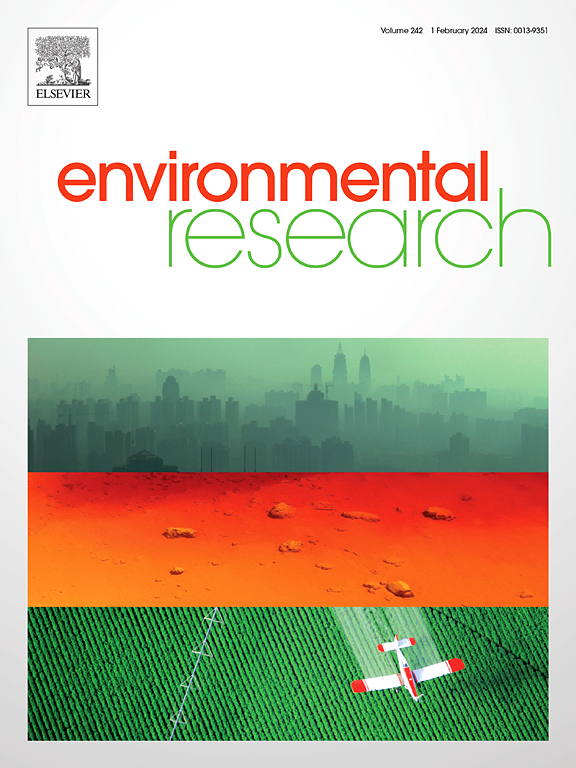Ocean acidification disrupts the energy balance and impairs the health of mussels (Mytilus coruscus) by weakening their trophic interactions with microalgae and intestinal microbiome
IF 7.7
2区 环境科学与生态学
Q1 ENVIRONMENTAL SCIENCES
引用次数: 0
Abstract
Despite extensive research in the last two decades, exploring the potential mechanisms underlying the sensitivity and resistance of marine organisms to ocean acidification is still imperative. Species interactions can play a role in these mechanisms, but the extent to which they modulate organismal responses to ocean acidification remains largely unknown. Here, we investigated how ocean acidification (pH 7.7) affects energy homeostasis and fitness of mussels (Mytilus coruscus) by assessing their physiological responses, intestinal microbiome and nutritional quality of their food (microalgae). Under ocean acidification, the mussels had reduced feeding rates by 34 % and reduced activities of digestive enzymes (pepsin by 39 %, trypsin by 28 % and lipase by 53 %) due to direct exposure to acidified seawater and increased phenol content of microalgae. Richness and diversity of intestinal microbiome (OTU, Chao1 index and Shannon index) were also lowered by ocean acidification, which can undermine nutrient absorption. On the other hand, energy expenditure of mussels increased by 53 % under ocean acidification, which was associated with the upregulation of antioxidant defence (SOD, CAT and GPx activities). Consequently, energy reserves in mussels decreased by 28 %, which were underpinned by the reduction in protein, carbohydrate and lipid contents. Overall, we demonstrate that ocean acidification could disrupt herbivore-algae and host-microbe interactions, thereby lowering the energy balance and impairing the health of marine organisms. This can have ramifications on the population and energy dynamics of marine communities in the acidifying ocean.

求助全文
约1分钟内获得全文
求助全文
来源期刊

Environmental Research
环境科学-公共卫生、环境卫生与职业卫生
CiteScore
12.60
自引率
8.40%
发文量
2480
审稿时长
4.7 months
期刊介绍:
The Environmental Research journal presents a broad range of interdisciplinary research, focused on addressing worldwide environmental concerns and featuring innovative findings. Our publication strives to explore relevant anthropogenic issues across various environmental sectors, showcasing practical applications in real-life settings.
 求助内容:
求助内容: 应助结果提醒方式:
应助结果提醒方式:


